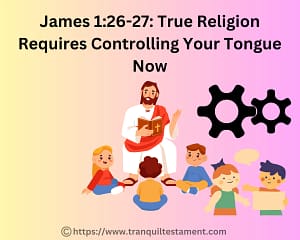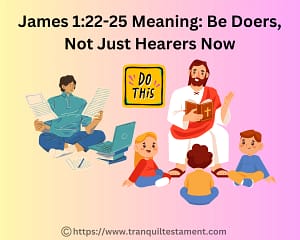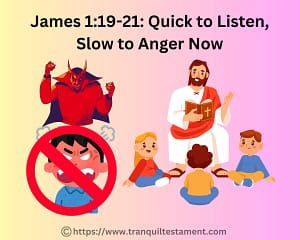Bible Gateway Psalm 44 :: NASB. Unlike the previous psalms, the main theme of Psalm 44 deals with a prayer for God’s help for the entire nation in the face of some national calamity. In other psalms, the petitions before God have been made on behalf of the individual or a group of people. But this prayer is on behalf of all the people.
In verses 1 and 2, the psalm begins with a review of how God had helped the people in the past. “We have heard it with our ears, O God; our ancestors have told us what you did in their days, in days long ago. With your hand you drove out the nations and planted our ancestors; you crushed the peoples and made our ancestors flourish”.
The histories of the Old Testament record the many successes of the Nation of Israel. But the Old Testament also was clear that those victories were always tied to their trust in God and obedience to His will. In verse 3, the Psalmist wrote,
“It was not by their sword that they won the land, nor did their arm bring them victory; it was your right hand, your arm, and the light of your face, for you loved them.”
After the review, the psalmist then turned to the distress that the nation was suffering. The psalmist, much like Job did in the book of Job, stressed that the people were suffering even though they were being true to the covenant that they had with the Lord. Again, the questions arise, “Why is this happening to us?” or “Why aren’t you doing something to help us?” Be it a nation or a person, “Why” is almost always the first thought when tragedy strikes.
Verses 9-12 state, “But now you have rejected and humbled us; you no longer go out with our armies. You made us retreat before the enemy, and our adversaries have plundered us. You gave us up to be devoured like sheep and have scattered us among the nations. You sold your people for a pittance, gaining nothing from their sale.” Apparently, Israel had suffered defeat from its enemies, and some of the land, or cities, of Israel were being plundered.
The surrounding nations, who actually were not involved in the plunder, were openly glad to see what was happening to Israel (vss 13-16). In verses 20-22, the Psalmist cried that it would have been easier to understand if they had forgotten pagan gods but, since they were faithful, why the suffering and trials?
The answer may rest on another question. How faithful was the nation? The history of Israel and later the nations of Judah and Israel, show the people going through good and bad times. After David, there were good kings and bad kings. There were times of great revivals and times of indifference. But the people consistently drifted towards idolatry and disobedience.
According to the prophets, calamities occurred that were warnings to the people to be truly committed to the Lord. But the warnings were disregarded. The people said that they believed and that they were “true” to the covenant; but they were not.
On the surface, it would seem that this psalm would have little to say to Christians today, but there are several important lessons that can be learned. First, whether it is an individual or an entire nation, there are consequences for sin. The Roman Empire supposedly became all Christian, but past events and actions did not simply disappear; and Rome eventually collapsed.
The United States has been richly blessed, and the nation has been used as God’s instrument to attack and defeat the evil that existed in World War II and the threat of the Soviet Union in the Cold War. Like Israel, the United States has experienced good and bad times.
Not all decisions and actions have been right, but there has been a tacit acceptance of Christian principles. Unfortunately, the sincerity of that acceptance has too often been lukewarm, and a culture that becomes increasingly corrupt and sinful will reap the consequences of those actions.
Another point is that suffering is part of life. As a Christian, our strength, faith, and trust GROW out of trials. Through the problems and obstacles erected by Satan, God will help us to flex and exercise our spiritual muscles. Trials will constantly demonstrate that we cannot do it alone. Countless times, the inspired scriptures stress that Christians MUST turn to God. So, one answer to the psalmist’s question would be to have patience and trust in the Lord.
In the petitions placed before God in prayer, it is good to remember the blessings that come from Him. Too often, with the problems and pressures of life, the blessings are accepted and forgotten while the problems become the focus of our attention. A prayer for help from God should include thanksgiving for what God has done.
There is also a warning for all Christians today. Many people say, “I love the Lord!” but their actions show that, in their heart, there is no real commitment and love. The relationship that exists between the Lord and a Christian is often described as a marriage. In a marriage between a man and woman, the man may say, “I love you”. But, if he goes out alone and is seen with other women, how valid is that claim of love? Likewise, a person can claim to love the Lord Jesus Christ, but if he, or she, insists upon living a life contrary to God’s will, then where is the love?
Sometimes, things will happen that can help a person to “wake up” to the need for Christ. After Pearl Harbor, the attacks of 9-11, and the massive destruction of hurricanes, people often flock to churches for help. But unfortunately, the interest quickly fades. Probably their attitude is little different that the attitudes displayed by the Israelites in the Old Testament.
When trials occur, trust in the Lord, and ensure that your faith IS anchored to the hope that exists in Christ Jesus. The trials may be come as discipline, and they may also come as warnings. It would be well if we, as individual Christians, and as part of this nation remember that.







[…] of the Son He says, ‘Your throne, O God, is forever and ever, and the righteous scepter is the scepter of His kingdom. You have loved […]